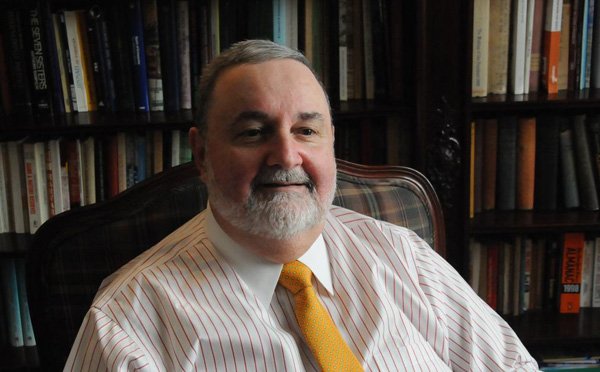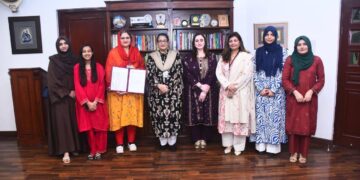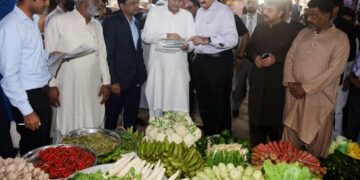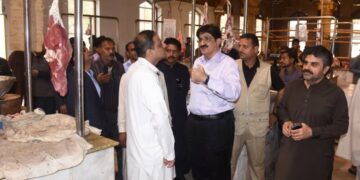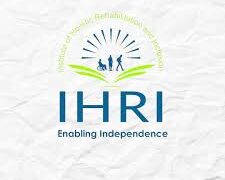KARACHi – The principal cause of ongoing Palestinian-Israeli conflict “Balfour Declaration” holds no international legal significance because Britain was in no position to divide or give parts of Palestine to non-native people. Palestine was under Ottoman rule and Britain had just occupied it, said Abdullah Hussain Haroon, a renowned politician and former Permanent Representative of Pakistan to the United Nations. He was speaking in an online Shura Hamdard meeting yesterday titled: “Palestinian Conflict and Pakistan’s courageous foreign policy, what more can be done?” The meeting was presided by Speaker Shura Hamdard Karachi Justice (r) Haziq-ul-Khairi. Mrs. Sadia Rashid, National President Shura Hamdard also attended the meeting from Hamdard’s Corporate Head Office.
Hussain Haroon said “The term used in Balfour Declaration “Jewish national home” also has no precedent in international law. Moreover, the intended boundaries of Palestine were not specified, and the British government later confirmed that the words “in Palestine” meant that the Jewish national home was not intended to cover all of Palestine.
He said “The Ashkenazi Jews were primarily, or to a large extent, descended from Khazars, a separate region located on the banks of the Black Sea. These Jews migrated to Europe and Russia and later found Zionist ideology. Their claims of owning Palestinian land as part of greater Canaan are unjust because they have no heredity with the native Canaanites.”
He also said that the adoption in 1947 by the United Nations General Assembly of a resolution recommending the adoption and implementation of a plan of partition of Palestine was one of the earliest acts of the United Nations. “After that, the United Nations has been influenced by the Western powers to remain indifferent to the Israeli atrocities in the region. However, with collective efforts of many countries opposed to the larger powers, the General Assembly proclaimed 2014 an International Year of Solidarity with the Palestinian People. This was in a way a victory for the Palestinian cause,” Hussain added.
He said “Pakistan’s last diplomatic achievement was the Lahore Muslim Summit back in 1974. After that, we have not been able to use diplomacy effectively.”
“Pakistan has to tackle the possible fallouts from the US troop withdrawal from Afghanistan and possible escalation in US/China tensions. New global partnerships are emerging, and Pakistan faces a hard challenge to maintain cordial relations with both camps. Despite this, Pakistan takes a firm stand on Palestine and has been instrumental in pursuing the global community to resolve the Palestinian issue,” he concluded.
Justice (r) Haziq-ul-Khairi said “Jews always faced a certain level of discrimination in Europe, and hatred for Jews reached its peak during the rise of Nazi Germany when Jews faced one of the most horrific genocide in human history. However, Jews remained safe under Muslims’ rule, and they faced no discrimination. But now Israelis have been committing the same crimes against Palestinians, which they themselves faced by the hands of Nazis.”
Prof. Muhammad Rafi said “The United Nations operates at the behest of world powers, and Israel maintains deep and strategic relations with influential countries. The latest violence is a testament to Israel’s genocidal policies. Pakistan has taken a firm position on the Palestinian issue and has raised a voice for Palestinians on all international forums including the UN general assembly.”
Prof. Dr. Khalida Ghous said “Unfortunately, the international community does not prioritize the resolution of Kashmir and Palestinian issues. Leaders of the many Muslim majority countries are pressurized by the US in normalizing ties with Israel. Palestinian politics is also polarized. In order to realize the two-state solution, Pakistan must use its diplomatic influence to convince Palestinian politicians and stakeholders to end political polarization.”
Zafar Iqbal said “Israelis are committed to make Jerusalem their capital, and they will never stop from encroaching Palestinian lands and establishing their illegal settlements. It is their strategy, and Pakistan must bring Islamic countries on board and try to prevent Israel from achieving this. Jerusalem is the capital of Palestine.”
Col (r) Mukhtar Butt said “Palestinians’ current situation is both painful and hopeless. Israel’s atrocities are well-planned and executed in order to throw out Palestinians from their lands. And at the same time they have been persuading global powers to influence the Muslim world to establish diplomatic ties with Israel. Pakistan must focus on its economy.”
Prof. Dr. Tanveer Khalid said “Palestinians face war-crimes at the hands of Israeli forces. The world community witnesses and there has been a rise in global sympathy for Palestinians within the populations of Western countries.”
Cdre (r) Sadeed Anwar Malik said “Israelis intentionally attack Palestinian civilian population to push them further into poverty. They create such a hopeless situation for the Palestinians that they have no choice but to migrate to other countries to secure a future for their children. This has been Israel’s strategy all along: to drive Palestinians out from their lands.”
Usman Damohi said “Palestine has always been one of the core focuses of our diplomacy. Our leaders have been vocal against Israel’s terrorism. Quaid-e-Azam also rejected the idea of establishing a Jewish state in Palestine.
Lastly Mrs. Sadia Rashid presented the vote of thanks to all members and guest speaker Mr. Abdullah Hussain Haroon for their participation. After that Justice (r) Haziq-ul-Khairi concluded the meeting.





